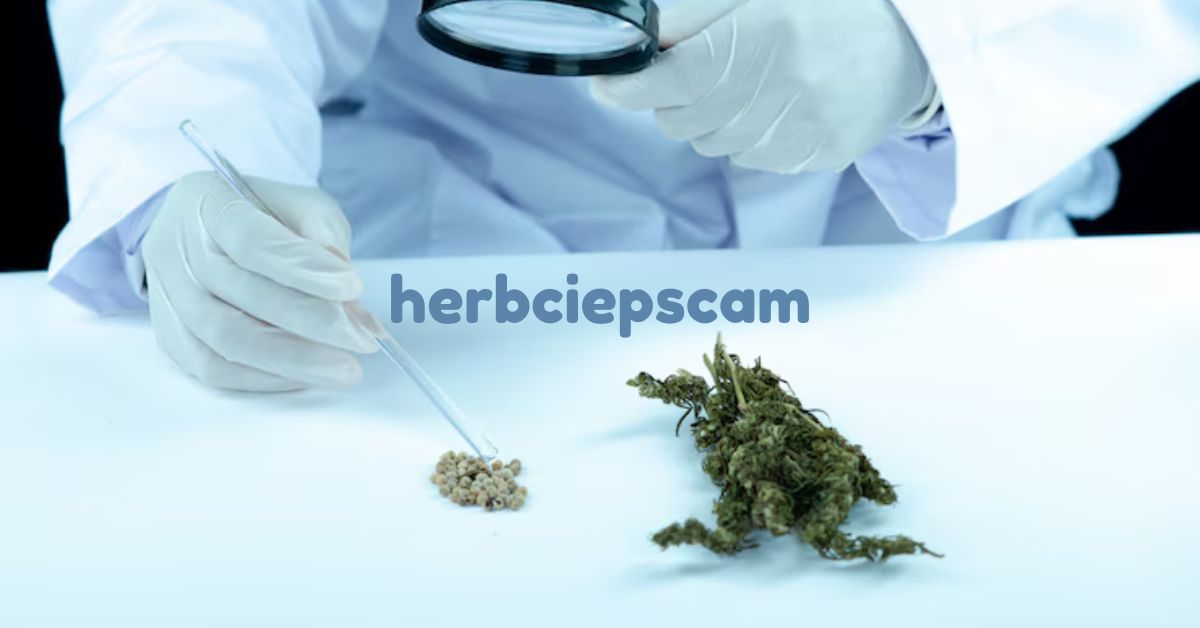Health
Understanding Herbciepscam: A Comprehensive Insight

When it comes to navigating the online world, avoiding scams and misinformation can be challenging. Recently, the term “herbciepscam” has sparked curiosity among individuals who want to know more about its meaning, implications, and whether it’s legitimate. This article will help you better understand the concept, exploring its background, effects, and the many factors tied to it.
What Is Herbciepscam?
“Herbciepscam” has been mentioned frequently, especially in online forums and digital communities. It attracts intrigue and sometimes causes concern. While its exact definition often depends on the context, the term usually relates to questionable practices or schemes in various industries or markets.
The name itself suggests an overlap between natural herb usage and potentially deceptive methods or unverified claims. This could involve supplements, alternative remedies, or sales tactics targeting wellness enthusiasts. The common thread is the potential for misleading offers attached to health-centered products.
How Did Attention on These Practices Grow?
Interest in natural health solutions has grown over the years, leading to both opportunities and risks. The popularity of trending herbal products drew attention from those looking to make quick profits. Some have marketed quick fixes or “revolutionary” goods without sufficient research or credibility.
Fake reviews and misleading advertising can contribute to market confusion. A shopper may find glowing testimonials for an herbal product, only to discover disappointing or even harmful results. This highlights the risks — bold promises are often unsupported by verified evidence.
Signs of Potential Scams in Herbal Products
Spotting scams, especially those connected to herbal products, is rarely simple. It’s important for consumers to be alert when evaluating goods that claim to be “herbal” or “natural.” Red flags include exaggerated marketing language, unclear ingredient lists, a lack of scientific backing or clinical trials, and websites offering minimal contact information.
Many people fall victim because a product seems trustworthy on the surface. For example, a site promoting a “limited-time offer” or pushing buyers to act fast—without spelling out refund options—may be using high-pressure sales tactics typical of dubious operations.
The Role of Misinformation
Misinformation is a significant reason why questionable herbal schemes persist. Unregulated platforms discuss herbal remedies without proper oversight, creating space for exaggeration and dishonesty. Consumers searching for hacks to address health concerns might mistakenly trust unreliable advice, landing them in problematic situations.
Social media furthers the spread by popularizing viral posts about “miracle herbs,” which are rarely supported by real research. Influencers and flashy marketing help these ideas spread, making it even tougher to distinguish honest goods from misleading ones.
Legal and Health Risks
Getting involved with counterfeit or mislabeled herbal merchandise can have legal and health consequences. From a legal perspective, one might inadvertently support unethical businesses. Because there is little accountability, those running scams often escape scrutiny and profit at the expense of unsuspecting customers.
The health dangers are more serious. For example, using a supplement marketed as energizing could result in ingesting harmful chemicals or undisclosed allergens. These cases erode consumer trust and could even endanger lives, especially in industries lacking proper regulation.
Medical professionals frequently warn that unregulated products can interact dangerously with current medicines or health conditions. While turning to nature can be beneficial, unchecked fraudulent activity diminishes the value of true herbal therapies.
Protecting Yourself
Being proactive and informed is the best way to stay safe. Education is essential: learning about herbal products—their contents, how they are made, and their intended uses—helps you recognize trustworthy choices.
Seeking professional advice before trying something new is always wise. Consulting healthcare experts ensures your choices match your health needs and minimizes potential risks.
Researching vendors can reveal red flags. Checking reviews and third-party certifications helps you avoid problematic purchases. Favor companies with transparency and strong reputations.
Real-Life Examples
This issue is easier to grasp by looking at actual cases. For instance, a much-hyped herbal weight-loss product once promised dramatic results without diet or exercise. Purchasers later found out it contained banned substances and did not deliver the natural ingredients listed.
In the beauty industry, similar scams have appeared with essential oils or skincare sold as miracle cures. Some customers experienced adverse reactions and ended up joining class-action lawsuits. These examples show why it’s critical to be cautious when considering herbal goods.
Why Regulation Matters
Efforts are underway to regulate these markets and establish firmer guidelines. Introducing certification and transparency requirements has started to limit abuses. Companies are being pushed to disclose accurate information to build trust.
But challenges remain. Regulatory gaps—such as inconsistent standards and jurisdictional issues—enable certain bad actors to avoid oversight. The push for increased awareness, consumer education, and agency partnerships remains vital.
The Importance of Combating Herbal Scams
Dishonest activity in this space undermines consumer trust in alternative and complementary health approaches. Integrity and transparency are key—for both safety and the reputation of legitimate businesses serving the health-conscious community.
Encouraging the public to remain vigilant and report questionable activity helps set a higher standard. By choosing reputable providers and following evidence-based recommendations, you contribute to curbing the negative impact of fraudulent practices.
Final Thoughts
The risks associated with herbal scams or misleading online offers represent a real challenge in today’s wellness landscape. While genuinely beneficial products do exist, the consumer must remain attentive and well-informed.
Staying alert, questioning bold claims, and relying on reputable sources will help you avoid pitfalls. Collective awareness and a focus on education reduce the power of fraudulent actors and ensure that genuine well-being—not opportunism—remains at the forefront.


